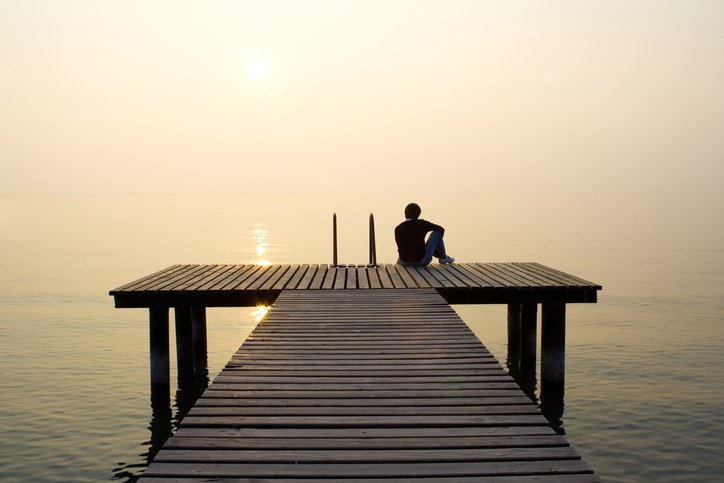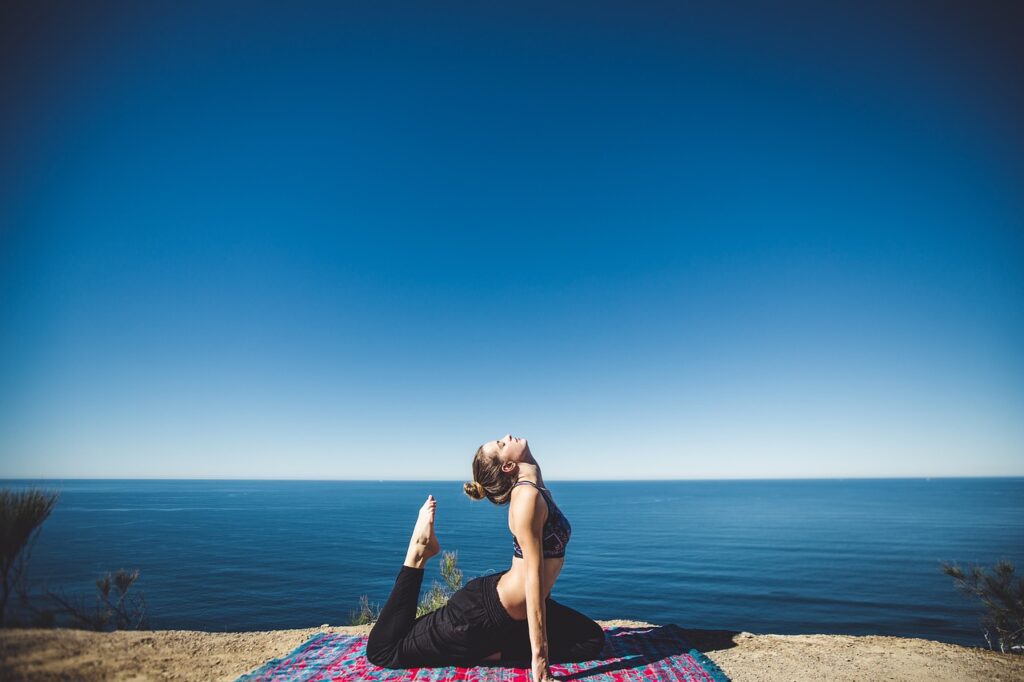If your life is anything like mine, your days often fly past in a complete blur.
Up early in the morning, get the kids off to school, or the dog out, or head for the gym – or all of the above.
Make the trek to work. Grind through the day’s meetings, e-mails, and phone calls.
Then home for the evening routine, and before you know it, the alarm rings and you start again.
Chances are, if you are here reading this post, you make at least a semi-conscious effort somewhere in there to continue learning. Maybe you’ve got a book tucked away in your bag, or a couple of blogs you check in on, or a course you take in the evenings at the community college.
But how often do you take the time to stop for a few minutes and reflect?
I still have miles to go in developing this habit, but I can say that it is something I have truly gotten better at since I started blogging many years ago. I don’t think it would even be possible to keep coming up with new things to write about for Mission to Learn if I didn’t take time daily to reflect on various aspects of my life.
But more importantly, taking the time to reflect is, in my opinion, one of the surest ways to strengthen learning and continue to grow. Let’s look at why and how to do it.
Why to Make Reflection a Habit
If you don’t currently make reflection a daily habit, I strongly recommend you try it. Here are just a few of the ways reflection can impact your life and your learning:
1. It helps you learn from – and get past – your mistakes
“I have not failed, I’ve just found 10,000 ways that won’t work,” Thomas Edison is often quoted (or perhaps misquoted) as having said. You can bet Edison spent time going back over his mistakes and failures, but he didn’t do it to beat himself up. Rather, he did it as a means of finding his way forward to future successes.
2. It helps you learn from – and celebrate – your successes.
We can and should learn from our mistakes and failures, but there is also evidence that we may learn more from our successes. In any case, there is not much joy in living and learning if we don’t take time to acknowledge the things we have done right – and build upon them.
3. It helps you make connections and generate new ideas.
When you take time to think back through your experiences, you almost inevitably begin to see connections among them that were not obvious at first. One thing always leads to another when you are reflecting, and before you know it, you’ve got a great new idea – whether for a convenient, affordable way to provide light to the average household, like Edison, or…uh, a new blog post 😉
4. It helps you to help others
Ideally, those connections you see when you reflect include connections to others. No learner is an island. How can you share what you’ve learned and how you have learned it in a way that benefits others? I think that simple question tends to be the foundation for so many successful personal relationships as well as business and nonprofit initiatives. And it all starts with reflection.
5. It gives you perspective and helps you relax.
So many of us, myself included, live lives that are overly busy and flooded by a continual stream of new information. We make mistakes, get overwhelmed, succumb to stress. Taking a few minutes daily to reflect, though, has an incredibly calming effect. It can help us put all of our efforts into perspective. Living and learning are not about some grand, ultimate goal. They are simply about learning and living. Relax.
How to Make Reflection a Daily Habit
If reflection isn’t something you feel you do enough, consider making it a habit. Here are some suggestions for doing that:
1. Commit to it.
Nothing becomes a habit if you are not willing to consciously commit to it, and I think a lack of commitment is one of the main reasons reflection doesn’t happen. We all know instinctively that it is a good idea, but it’s too easy to put it in the “Someday” bucket. Tell yourself clearly, consciously that you will make reflection part of your daily learning habit.
2. Figure out what works
Reflection can take many forms. Take some time to find the one that is right for you. Here are some suggestions:
- You may just want to sit quietly for several minutes. Perhaps start with some simple breathing exercises to help you relax and then calmly think back over your recent activities, how they relate to each other, and what meaning they have in your life.
- Or maybe start a one-sentence journal. This one comes from Leo Babauta via Gretchen Rubin, author of The Happiness Project. It’s just what it sounds like. Write one sentence (or thereabouts) a day. You’ll be amazed at what you have captured by the end of a year.
- Consider blending reflection with exercise. This doesn’t work for everyone, but runners in particular seem to be able to make it work. Personally, even though I am a runner, I need to slow down a bit and walk if I am going to reflect while exercising – which I often do.
- Write about it publicly. Where do you think this blog post came from? The decision to blog or post to some other place that people can see – like a forum – can help hold you accountable. More importantly for some people, it can lead to a network of others who connect with and engage in your reflections, which can lead to positive reinforcement.
3. Focus on doing it at the same time, every day. No exceptions. No matter which approach you choose, get into the reflection habit by taking just a few minutes at the same time each day to reflect.
People tend to think of reflection as an end of day thing. Personally, I find it most helpful when I do it first thing in the morning, before everything else. That’s when my mind is clearest.
Do what works for you, but however you go about it, it’s good if you have a trigger (such as, “right after I brush my teeth”). This will help establish the habit. If it helps, consider signing up for an online service that sends you a daily reminder at the same time each day.
4. Move from narrow to broad. I find it helps to focus in on small, recent things first. What’s happened the prior day (or earlier in the day, depending on your timing). What are the things that went well, or could have gone better. How?
Move from there into your broader, day-to-day work and life. Finally, connect these smaller, more recent experiences into your life as a whole and any goals you have set for yourself. Thinking through – and then moving beyond – the more narrow parts of your day-to-day experience and out into a broader vision really helps with developing a sense of perspective.
How does reflection fit into your learning habit? What are some of the highlights for you? How do you use reflection in your daily life? Please leave a comment below to share your experience with or questions about reflection.
See also:
P.S. This post is part of of my “Zen Learning Habits” series and was inspired by Leo Babuta’s 5 Powerful Reasons to Make Reflection a Daily Habit, and How to Do It. More about the series.






I have a major habit of self reflecting. I reflect on any given situation throughout my day. I break down whatever is bothering me from a nuetral perspective to gain a clear perspective. This allows for me to draw a conclusion I can stand by wether right or wrong. I can then correct any wrongdoing or assure myself of my actions. Either way I ultimately can stand confident of myself. Eventually, it evolves into a foundation you can learn to trust. Without an open mind, and willingness to learn, you will never grow and learn to become a better person.
Pingback: 3 Essential Rules for Learning Yourself and Your Business Forward in 2013
Julie – Thanks for pointing out Penzu. I just went to check it out, and it looks very nice. – Jeff
What a great post! I like to keep a personal journal to reflect on my day. I keep one online at https://penzu.com – a perfect tool for what you are talking about!
Thanks!
Thanks to everyone for the great comments!
Endy – Gretchen is in my (overly large) collection of feeds, but I had not seen that post yet. Thanks for pointing it our. You are right – it is a great complement. And I’m going to have to check out the kaizen book.
Helen – I think that reflection is certainly a path to imbuing all of our experiences with more meaning, and I share your feeling that “less is more.”
Avil – It’s great to hear that you are benefiting from regular reflection. I think “perspective” is such a key part of it. So easy to lose perspective in a hyper-connected, information-overloaded world!
Jeff
Thanks for the great post. I take time to reflect regularly because it helps me to grow as a person. I journal , meditate and I step back from situations and look at them as an objective bystander and I often get a new perspective.
Jeff, I’ve been realizing lately that life in the association world often has us racing as fast as hamsters on their exercise wheels. My goal is to slow down so that I’m connecting more meaningfully with other staff members (taking time to explain why certain ways of communicating with our members or active volunteers are important, even though they take more time) and connecting in a more personal way with our members (mostly about our annual meeting) rather than just giving a rote answer to each inquiry. Previously, I would have been more proud of being able to answer 300 emails in a single day. Today, I am thrilled to have a meaningful communication with a member or nonmember attendee. I truly believe that imbuing each of these connections, staff and attendee, with more meaning will ultimately result in a richer life for all of us! (This is all following on Jeff DeCagna’s session at ASAE! My take-aways.)
I also believe that taking the time to reflect, breathe deeply, and slow down is key in helping us and the world. A next step might be “news breaks” where you don’t read or watch the news for a specified time!
Thanks for the blog, Jeff! I am taking your words to heart!
Hey Jeff,
I think this post goes great when combined with what Gretchen Rubin wrote yesterday about the kaizen way – using small steps of continuous improvement to bring about change (she’s on my RSS dashboard. I’m assuming she’s on yours too since you’ve mentioned her in this post. The link to the post is:
https://gretchenrubin.com/2009/09/why-might-small-comfortable-changes-work-better-than-radical-steps).
So connecting your idea with Gretchen’s idea, we can start building self reflection as a habit for one minute a day (for example, just to get started and so not to get overwhelmed). Maybe combine that with the breathing exercises as said by Andrew Weil.
Cheers,
Endy